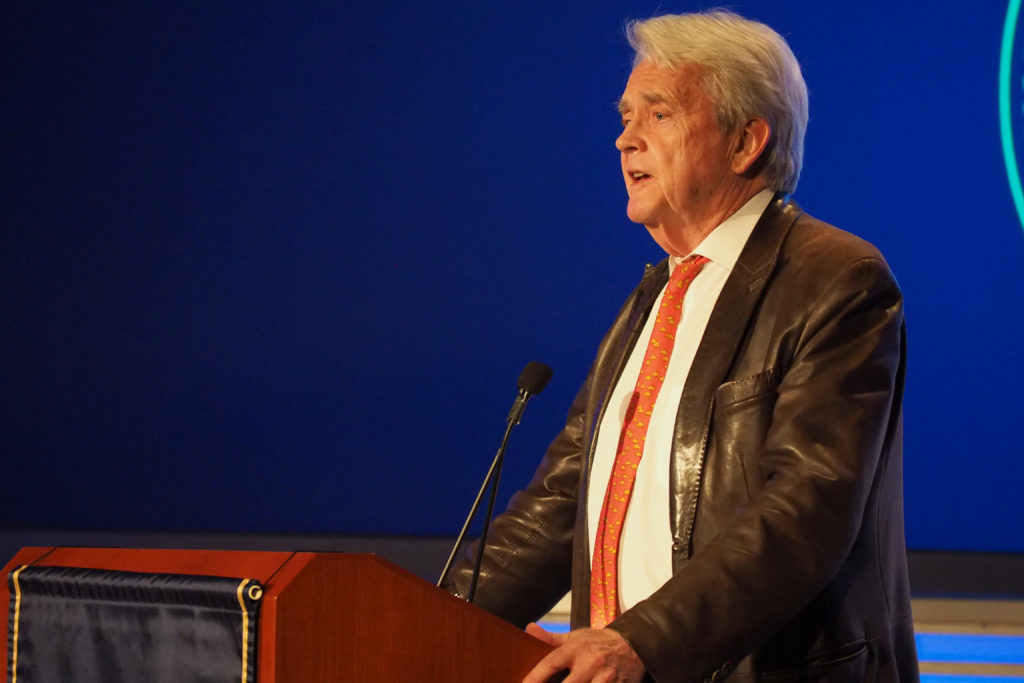A former head of the U.S. Environmental Protection Agency spoke about America’s role in solving environmental issues at the Jack Morton Auditorium Wednesday.
William Reilley, who served the agency’s administrator from 1989 to 1993 under former President George H. W. Bush, gave a lecture titled “Can America Still Do Things?” at an event looking back at the progress the environmental law field has made in the last 50 years. The talk kicked off the 50-year anniversary celebration of the GW Law School’s Environmental and Energy Law Program.
Reilley, who led efforts to pass the Clean Air Act amendments in 1990 – laws intended to curb the pollution responsible for acid rain – reflected on his time as administrator and the positive effects of the agency’s actions over the years.
“What the country doesn’t know is that over the past 15 or so years, millions of lives have been saved in the developing world,” he said.
Reilly said EPA leaders and employees have helped reduce child mortality rates and diseases like malaria and polio by enacting regulation based on the agency’s mandate under the Clean Air Act, a seminal piece of climate legislation enacted in 1963.
“This has been an achievement of extraordinary significance and it’s been our own government,” he said.
Reilly said the potential impact the agency could have had on public health in the United States in recent years has been curtailed by Congress’s failure to pass “specific statutory directives” to address environmental issues, adding that the inaction is in part because of the public’s lack of a “very strong commitment” to the environment that was present when he served as administrator.
“It’s important to recognize we have this capacity, we’ve exercised it before – a country has to have confidence, care, and enthusiasm, and I could question whether we have that right now,” he said.
He said public opinion today contrasts with the strong public support for environmental legislation in the early 1990s that showed then-President Bush that it was a “core value to the American public” that the agency be given greater capacity to take action on environmental issues.
Reilley said politicians today should use terms like “energy efficiency” instead of “climate change” to avoid any negative connotations or polarizing attitudes associated with the subject. He added that public interest in climate change policy is necessary to push long-lasting environmental policies through the legislative process.
“We must again move the unfinished business of the environment into that nexus of core values of the public,” Reilley said.
He said some House of Representatives members that would vote in support of climate-related bills refrain from doing so for fear of losing to primary challengers during elections. Reilley said climate change rarely emerges as an issue during congressional elections because the public does not perceive a sense of urgency with climate change issues.
“I hope that the present period, which is not one of high morale, is one that people power through,” he said.





